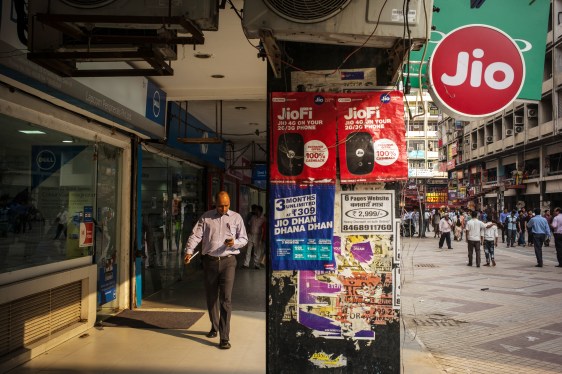
Cloudflare’s VPN App Among Half a Dozen Pulled From Indian App Stores Due to Regulatory Compliance Issues
The Indian Ministry of Home Affairs has issued removal orders for more than half a dozen VPN apps, including Cloudflare’s widely used 1.1.1.1, from the country’s Apple App Store and Google Play Store. The move comes after intervention from government authorities, according to a document reviewed by TechCrunch.
The Affected Apps
Among the affected apps are:
- Hide.me: A popular VPN app that offers secure browsing and streaming.
- PrivadoVPN: Another well-known VPN provider that promises fast speeds and robust security features.
The removal of these apps from the app stores marks a significant development in India’s efforts to regulate VPN services. The Indian government has been cracking down on online content and services that it deems to be a threat to national security or public order.
The Regulatory Framework
India introduced its 2022 regulatory framework governing VPN apps, which mandates that VPN providers and cloud service operators maintain comprehensive records of their customers for a five-year period. The rules require the collection of sensitive information, including:
- Customer names: To identify users and verify their identities.
- Addresses: To track user locations and ensure compliance with local laws.
- IP addresses: To monitor user activity and detect potential security threats.
- Transaction histories: To record all financial transactions related to the VPN service.
Industry Pushback
The stringent requirements have prompted pushback from major industry players. Leading brands like NordVPN, ExpressVPN, Surfshark, and Proton VPN have voiced significant reservations about the rules. Several have announced plans to withdraw their server infrastructure from India in protest against the regulations.
- NordVPN: Despite maintaining services for Indian customers, the company has stopped marketing its app in the country.
- ExpressVPN: Similar to NordVPN, ExpressVPN continues to serve Indian users but has ceased promoting its app in the region.
- Surfshark: This VPN provider has also halted marketing efforts in India while continuing to offer services to customers.
Consequences for Developers
The removal of these apps from the app stores has significant implications for developers. The affected developers have received communication from Apple, citing a "demand" from the Indian Cyber Crime Coordination Centre (IC3C), part of the Ministry of Home Affairs. IC3C deemed the developer content to contravene Indian law.
- Hide.me: Received a notification from Apple regarding the removal of its app due to compliance issues.
- PrivadoVPN: Similarly, received a communication from Apple regarding the removal of its app due to non-compliance with Indian regulations.
The enforcement action marks the first significant implementation of India’s 2022 regulatory framework governing VPN apps. The rules have sparked controversy and debate within the industry, with many questioning the feasibility and effectiveness of such stringent requirements.
Industry Experts Weigh In
Industry experts have expressed concerns about the impact of these regulations on online security and freedom. They argue that:
- Overly broad: The rules may be too broad, allowing for arbitrary interpretation and potential abuse.
- Intrusive: The requirement to collect sensitive information from users could compromise their privacy.
The Indian government’s move to regulate VPN apps has sparked a wider debate about the balance between national security and individual freedoms. As the situation unfolds, it remains to be seen how these regulations will shape the online landscape in India and beyond.
What’s Next?
As the regulatory environment continues to evolve, developers and industry players must adapt to the changing landscape. The removal of VPN apps from app stores serves as a reminder that governments worldwide are paying closer attention to online activities.
- Compliance: Developers must ensure compliance with local regulations to avoid similar situations.
- Transparency: Industry players should prioritize transparency in their operations and practices to build trust with users.
The situation highlights the complex interplay between national security, individual freedoms, and technological advancements. As the world becomes increasingly interconnected, it is essential for governments, developers, and users to work together to strike a balance that protects both interests.
Conclusion
India’s crackdown on VPN apps has sent shockwaves through the industry, sparking debate about the role of regulation in protecting national security and individual freedoms. The situation serves as a reminder that online activities are subject to scrutiny, and compliance with local regulations is essential for developers.
The future of online security and freedom will continue to be shaped by evolving regulatory frameworks and technological advancements. As we navigate this complex landscape, it is crucial to prioritize transparency, collaboration, and mutual understanding among stakeholders.
References
- Indian Ministry of Home Affairs
- Cloudflare 1.1.1.1 App Store Listing
- Hide.me App Store Listing
- PrivadoVPN App Store Listing
Subscribe to TechCrunch
Stay up-to-date with the latest tech news, trends, and insights by subscribing to TechCrunch’s newsletters.
